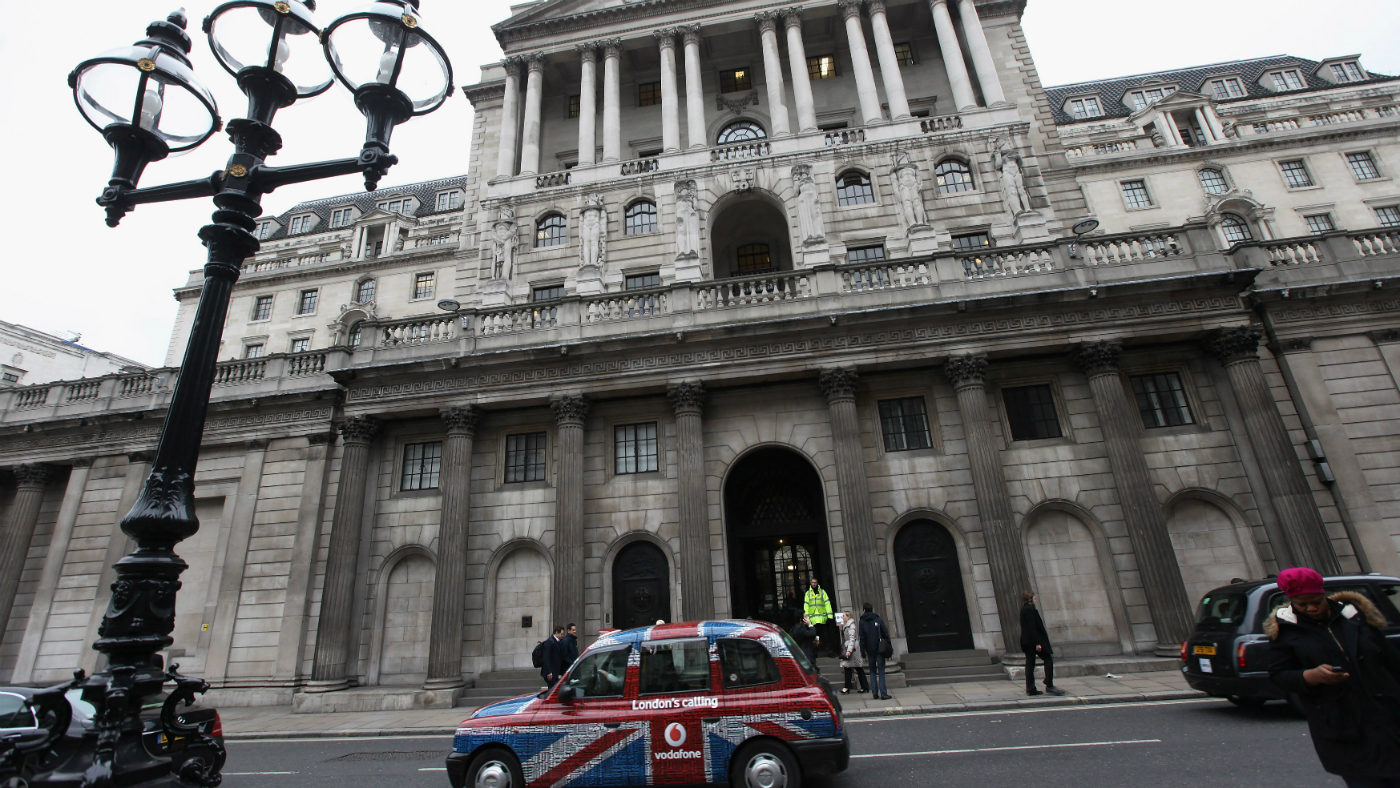Inflation jumps to 2.9% as petrol and clothing prices rise
Bigger-than-expected inflation hike puts pressure on the Bank of England to raise interest rates

A free daily email with the biggest news stories of the day – and the best features from TheWeek.com
You are now subscribed
Your newsletter sign-up was successful
UK inflation rose to 2.9% in August on the back of rising fuel and clothing costs, increasing pressure on Bank of England policymakers who have held interest rates steady for more than a year.
The Office for National Statistics said the inflation rate rose from 2.6% in July, in part due to the drop in the value of sterling after the Brexit referendum, which nudged up prices for imported goods including fuel and clothing. The last time inflation was higher than 2.9% was in April 2012.
“The Bank of England will decide on Thursday whether to raise rates in order to curb inflation with today’s higher-than-expected pick-up cranking up the pressure on the central bank’s policymakers,” The Daily Telegraph reports.
The Week
Escape your echo chamber. Get the facts behind the news, plus analysis from multiple perspectives.

Sign up for The Week's Free Newsletters
From our morning news briefing to a weekly Good News Newsletter, get the best of The Week delivered directly to your inbox.
From our morning news briefing to a weekly Good News Newsletter, get the best of The Week delivered directly to your inbox.
While the figures may increase pressure on BofE policymakers, the Monetary Policy Committee is expected to hold its key interest rate at 0.25%. But rate markets are pricing in a one-in-three chance of a rise by the end of 2017, compared with one-in-five a week ago, says Bloomberg.
Last month, two of the nine-member Monetary Policy Committee voted to increase interest rates from their record-low of 0.25%. There is speculation that economist Andy Haldane could join them at this week’s meeting.
A 6-3 vote “could prompt a re-appraisal of the potential path of interest rates,” James Knightley, chief international economist at ING in London, told Bloomberg. “But we feel that the economic uncertainty brought about by Brexit will lead the committee to hold fire until there is much greater clarity on the UK’s post Brexit environment.”
Paul Hollingsworth, an economist with Capital Economics, told Reuters that he expected inflation to peak at 3.1% in October “and the subsequent easing of price pressures would probably leave a clear majority of rate-setters voting for no change.”
A free daily email with the biggest news stories of the day – and the best features from TheWeek.com
“With mixed signals on the current strength of the economy and the majority of the Committee appearing to be comfortable with a temporary, exchange-rate driven pick-up in headline inflation, we don’t think that the MPC will be panicked into raising interest rates imminently,” Hollingsworth said.
-
 6 of the world’s most accessible destinations
6 of the world’s most accessible destinationsThe Week Recommends Experience all of Berlin, Singapore and Sydney
-
 How the FCC’s ‘equal time’ rule works
How the FCC’s ‘equal time’ rule worksIn the Spotlight The law is at the heart of the Colbert-CBS conflict
-
 What is the endgame in the DHS shutdown?
What is the endgame in the DHS shutdown?Today’s Big Question Democrats want to rein in ICE’s immigration crackdown
-
 The end for central bank independence?
The end for central bank independence?The Explainer Trump’s war on the US Federal Reserve comes at a moment of global weakening in central bank authority
-
 Will Trump’s 10% credit card rate limit actually help consumers?
Will Trump’s 10% credit card rate limit actually help consumers?Today's Big Question Banks say they would pull back on credit
-
 What will the US economy look like in 2026?
What will the US economy look like in 2026?Today’s Big Question Wall Street is bullish, but uncertain
-
 Is $140,000 the real poverty line?
Is $140,000 the real poverty line?Feature Financial hardship is wearing Americans down, and the break-even point for many families keeps rising
-
 Fast food is no longer affordable for low-income Americans
Fast food is no longer affordable for low-income AmericansThe explainer Cheap meals are getting farther out of reach
-
 Why has America’s economy gone K-shaped?
Why has America’s economy gone K-shaped?Today's Big Question The rich are doing well. Everybody else is scrimping.
-
 Should Labour break manifesto pledge and raise taxes?
Should Labour break manifesto pledge and raise taxes?Today's Big Question There are ‘powerful’ fiscal arguments for an income tax rise but it could mean ‘game over’ for the government
-
 From candy to costumes, inflation is spooking consumers on Halloween this year
From candy to costumes, inflation is spooking consumers on Halloween this yearIn the Spotlight Both candy and costumes have jumped significantly in price